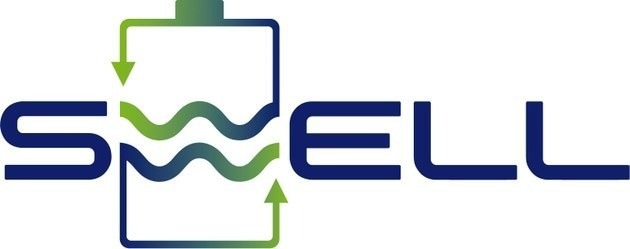Electromobility is an essential building block for the energy transition. Many electric vehicles presently use lithium-ion batteries as their primary energy storage device because of their high energy and power density.
 Chemist Prof. Jan J. Weigand and his team at TU Dresden are partnering on a joint project aimed at improving the ecological footprint of lithium-ion batteries (LIBs). The project led by the company Elyte Innovations GmbH is named “SWELL—Recovery of Electrolyte Salts and Solvents,” and funded by the German Federal Ministry of Economics and Climate Protection. In contrast to most previous research approaches, the project does not focus on recycling the metals in LIBs, but on recovering the non-metallic components, including lithium salts, solvents, and electrolyte additives. Image Credit: Technische Universität Dresden.
Chemist Prof. Jan J. Weigand and his team at TU Dresden are partnering on a joint project aimed at improving the ecological footprint of lithium-ion batteries (LIBs). The project led by the company Elyte Innovations GmbH is named “SWELL—Recovery of Electrolyte Salts and Solvents,” and funded by the German Federal Ministry of Economics and Climate Protection. In contrast to most previous research approaches, the project does not focus on recycling the metals in LIBs, but on recovering the non-metallic components, including lithium salts, solvents, and electrolyte additives. Image Credit: Technische Universität Dresden.
Recently, the greater demand for battery production has substantially increased the raw material requirements for lithium, cobalt, and other metals. The expensive mining of these resources poses severe environmental problems. As a result, effective recycling of spent batteries is a key sustainability factor for this technology.
While existing recycling processes have primarily focused on recovering the metals found in LIBs, the “SWELL” initiative is the first to address the recovery of the non-metallic components, namely the electrolytes, which include lithium salts, solvents, and electrolyte additives.
The electrolytes are largely lost in previous processes in the form of thermal recycling or downcycling. However, the electrolyte components have significant material value and contain critical, environmentally relevant resources, such as lithium, fluorine, and phosphorus. Their recovery and efficient reprocessing with the aim of direct reuse in LIBs is therefore of great interest and can lead to a significant increase in the sustainability of battery cell production.
Dr. Kai Schwedtmann, Chair of Inorganic Molecular Chemistry, Technische Universität Dresden
Prof. Jan J. Weigand’s group is focusing on effective separation methods of liquid and solid electrolyte components to boost material recovery rates during LIB recycling.
By developing and evaluating such a method, we aim to improve access to battery materials in Europe and reduce the environmental footprint of LIBs. We can achieve these goals by providing secondary components from cost-efficient processes in the future, thereby reducing dependencies along the battery value chain on non-European suppliers.
Jan J. Weigand, Professor and Project Manager, Technische Universität Dresden
The initiative is supported by the primary partner Jülich and supported by the German Federal Ministry of Economics and Climate Protection. Led by the company Elyte Innovations GmbH, the consortium includes TU Dresden and Fuchs Schmierstoffe GmbH.